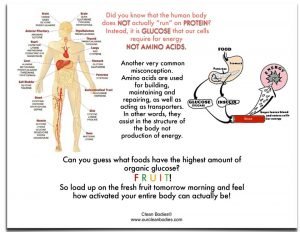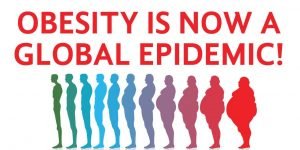Role of carbohydrates in human body

Introduction:
Carbohydrate is a macromolecule that makes a large portion of our daily food intake. Mostly the staple food we take is carbohydrates. The most of energy that we need for our daily activities comes from the carbohydrates. Carbohydrates act as a fuel for our body to move and work. From the nutrition point of view, Carbohydrates has great importance. The standard portion of carbohydrates that should constitute our daily diet intake is 45-65%. Carbohydrates are very important for our health and body. The major role of carbohydrates in our body will be discussed this article.In this article i will discuss about that rule of carbohydrates in human body.
TYPES OF CARBOHYDRATES:|Role of carbohydrates in human body
There are three major types of Carbohydrates that are:
Mono-saccharides
Oligo-saccharides
Polysaccharides
Mono-saccharides:
Monosaccharides are that type of carbohydrates that comprises of glucose, fructose and galactose. Out of these 3 the most important one is glucose from the nutrition point of view and role in our body and only this type will be explained here.
Glucose:|Role of carbohydrates in human body
It also known as dextrose. And only the type of carbohydrate that is taken by our brain as its food. Our brain only use fats (DHA & EPA) and carbohydrates as an energy source. Moreover, glucose is the instant source of energy for brain.
Normal human blood contains about 80 to 100 mg glucose per 100 ml and it tends to maintain the muscle structure and functioning.
Moreover, glucose is involved in maintaining the human blood chemistry and osmotic pressure to a little
The normal blood
glucose level for humans ranges from 80mg-120mg/dL , if the blood glucose level rises the end point of 120mg it leads to diabetes that further leads to sudden weight loss, polydipsia, polyuria, polyphagia and elusion of thoughts etc occur. Mostly, the nervous system gets damaged due to the elevated levels of glucose in blood and the patient becomes hyper in no time.
If the glucose level drops below the bottom line of 80mg/dL of blood, it leads to hypoglycemia in which there is a condition of low sugar level in blood that leads to shivering, muscles cramp and twitching, fatigue and loss of consciousness .In this article So, it’s very important to keep the blood glucose level in the normal range to keep you healthy and smart.
Glucose stored| Role of carbohydrates in human body
in liver in the form of glycogen and is released into the blood on the action of glucagon when it is required. It is taken up by cells on the command of insulin when it is crossing the maximum limits. In this way, glucose level is maintained and any disruption in this cycle leads to the conditions of hypoglycemia or diabetes.
Sources of glucose:|Role of carbohydrates in human body
Glucose is mostly present in fruits e.g dates and figs.
It occurs naturally in fruits with in the ratio of 2-6%.
And occurs in honey with 25-37%.
Oligosaccharides:
Oligosaccharides are the sugars bit more complex than monosaccharaides that are simplest sugars. They consist of normally 3-10 condensed mono-saccharide units.
Sources of oligosaccharides:
Sources of oligosaccharides are:
Onion and garlic (fructose-oligosaccharide)
Soybean (galactic-oligosaccharide)
Fruits, honey; and milk contains xylo-oligosaccharide type.
Functions of oligosaccharides:
The physiologically functional oligosaccharides are short-chain polysaccharides that meet two specific requirements:
They preferentially consumed by beneficial intestinal bacteria, the Bifido-bacteria in colon.
Oligo-saccharides act as pre-biotics for the beneficial bacteria in our colon that are bifido-bacteria that are pro-biotics. By consuming the oligosaccharides, the pro-biotics or bifido-bacteria produce short-chain fatty acids mainly lactic acid and acetic acid and some anti-biotic material.
Probiotics suppress the activity of putrefactive and pathogenic bacteria and has an anti-cancer effect or the probiotics produce the
cancer killing enzymes in colon.
Oligosaccharides reduce the toxic metabolites and deleterious enzymes and increase the production of useful nutrients.
Prevent constipation and protect the liver function.
Reduce serum cholesterol level and blood pressure.
Have an anti-cancer effect.
Polysaccharides:
Poly-saccharides are the complex carbohydrates that counts for about 1000 units of mono-saccharides in their chains. Types of
polysaccharide include:
Starch
Glycogen
And dietary fiber;
Starch and glycogen are the storage form of glucose in plants and animals respectively.
The most important type of Polysaccharides is dietary fibers that usually give no nutrition but have health benefits on the human digestive system.
Functions:
Types of Fiber;
Soluble Fiber: These are such type of fibers that are partially soluble in water.
In the digestive tract these fibers bind water with them and create the feeling of ful-fillness in stomach.
They form gel in the intestinal tract and delay gastric emptying time.
Decrease glucose absorption and reduce cholesterol level of plasma.
They include; pectin’s, gums and mucilage’s.
Insoluble Fiber: They are such type of fibers that are insoluble in water and include;
Celluloses, hemi-celluloses and lignin’s.
This increases the fecal bulk
accelerates the transient time
slows starch hydrolysis
delays glucose absorption
gives strength to GIT by strengthening the process of peristalsis.
Conclusion:
So, in a nutshell carbohydrates have many health benefits on our health but the must be consumed according to their standard size in our diet.

























+ There are no comments
Add yours